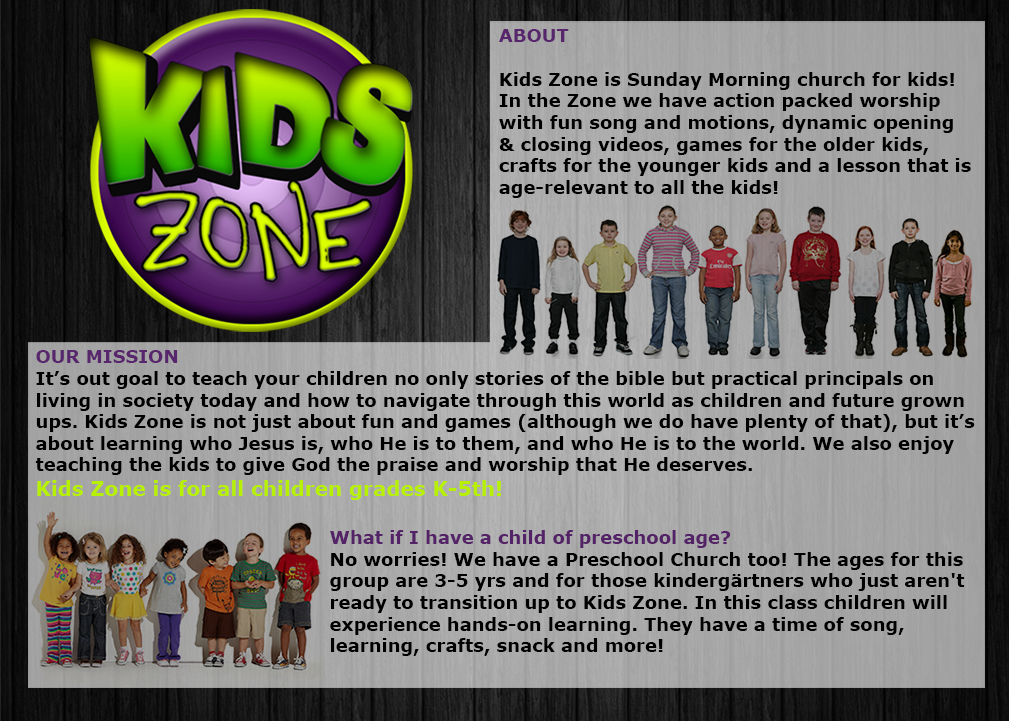

1. Powerful in Prayer
Prayer is communication with God. It is our dream that every child will know to thank God for the good things He brings their way and know that their faith changes things. It would be our goal that kids understand the importance of daily conversations with their Heavenly Father and would see the miraculous happen as a direct result of their prayers. There is power in having a disciplined prayer life. But there is freedom in knowing you can talk to God anytime and anywhere. Both corporate and individual prayer is important. Prayer for personal needs, prayer on behalf of others (intercession), and prayer in the Spirit are all components of becoming powerful in prayer.
2. Responsive in Worship
Our lives should be lived as an offering of praise unto God. It is because of Him that we are able to have life and do the things that we do. When it comes to corporate worship, encourage children to explore a variety of ways they can express their gratitude to the Lord for His goodness in their lives. Corporate worship is often the bridge that God uses to help pave the way for the Word of God and the mess
age from the Holy Spirit. Help kids understand that how they live their lives is an expression of worship to their Heavenly Father, and the moments where singing and dancing in church allow for collective praise to rise to Heaven.
3. Biblically Fluent
It’s important that children be able to read the Bible with sufficient understanding for life, have the knowledge of how to engage the text and gather its meaning. They should memorize Scripture, facts about the Bible, and have a basic understanding of the timeline and characters. Biblical fluency builds on top of that with an expectation that the message of the gospel has permeated their hearts and minds to the point where their thoughts, conversations, and actions are actually shaped according to the truths found in the Word of God. In the same way, while people may become literate in a language and get by, language fluency means the culture changes the way the persons thinks and behaves. Our goal is that kids are biblically literate and exhibiting actions consistent with being fluent in the Word of God.
4. Spirit Empowered
John declared of Jesus, “He will baptize with the Holy Spirit and with fire” (Luke 3:16, NIV). The goal of Spirit empowerment includes the initial physical evidence of being filled with the Holy Spirit, but more importantly to reveal what the Spirit-empowered life looks like for every believer today. Kids should have a solid biblical understanding of the Holy Spirit and a confidence that He will empower them for daily life. They should know how to recognize the voice of the Holy Spirit and be willing to obey even before they know what the end result will be. Immediate obedience is key.
5. Actively Serving
If there’s one thing that American Christians may need the most perspective shift in, it’s the importance of serving. Faith is designed to be lived out in how we serve others. Within the goal of getting kids to serve actively, people should consider serving in the home, serving in the church, and serving in the community. Although serving the home and church are much easier to facilitate (and can be safer) a community-based service project has the potential for the greatest amount of life impact in a child. As people exhibit a life of serving others, it causes faith to grow in incredible ways. A faith that is self-focused becomes ingrown and stagnant.
6. Bold in Faith
Jesus gave us all a commission to live out—we are to go into all the world. Our world is hurting and in need of an embrace from the Heavenly Father. The children in your ministry are drawing closer to God each and every day and have tasted and seen to know the Lord is Good. Finding ways to help them talk about the goodness of God is critical in helping them become bold in their faith. Help kids learn the skills necessary to open doors for conversations about God, but don’t overcomplicate the process to make it seem out of reach.
7. Giving Selflessly
If children understand that everything belongs to the Father and that we have been trusted to use it according to what is in His heart, meeting the needs of others becomes second nature. When children have a proper understanding of stewardship, their response to the question of “Should I give to meet this need?” becomes entirely different. They begin to see their resources through the eyes of how Jesus would use them if He were here. God’s heart is to care for the orphan and the widow, that He wants people to hear about a hope for their future, and that He looks after the poor. As kids understand this, they will use what has been entrusted to them to extend the heart of God into those exact places.
8. Living Like Christ
2 Corinthians 3:18 states, “We … are being transformed into his image” (NIV). This is the essence of spiritual formation. As we abide in Christ, His Spirit becomes our spirit, we desire to obey the instructions of Christ, and we begin to look more like Christ than we look like the world. This goal encompasses the nature of Christ not expressly exhibited through the other seven goals. In particular, it could be defined as being baptized in water, taking Communion, fulfilling the Great Commandment and the Great Commission, and exhibiting the fruit of the Spirit. As we abide in Christ we will bear fruit that remains.
